Meet Our AI Experts
LSU is the flagship research university of Louisiana. Being the flagship is much more
than a designation. It is a call to action. We deliver the education, research, and
solutions that will lead Louisiana and impact the world. As many as 180 LSU faculty
use AI and machine learning to advance their research. Some of them also develop and
secure AI as a technology. Here, meet some of our leaders in AI.
AI for Better Animal Care
Neoklis Apostolopoulos, assistant professor of veterinary dermatology, focuses on applications of artificial intelligence in veterinary dermatology and otology. He is developing tools with computer vision and fine-tuned large language models with retrieval-augmented generation to support diagnostics and education. His funded research includes AI-powered tools for diagnosing ear diseases in dogs. At LSU, he co-leads the Dermatology, Ear and Allergy Service that is part of the LSU Veterinary Teaching Hospital and directs the Neoklis Apostolopoulos Veterinary Dermatology Laboratory, which is first in the world to develop computer vision tools for pet ear diseases. Recent peer-reviewed publications include the development of a detection tool for canine external ear canal lesions using AI, and a computer vision model for the detection of canine pododermatitis and neoplasia of the paw. Dr. Apostolopoulos earned his veterinary degree from the University of Thessaly, Greece, in 2011 and became a board-certified specialist in 2021. In 2025, he completed the LSU AI & Machine Learning Bootcamp, a program focused on Python, natural language processing, deep learning, and generative AI.
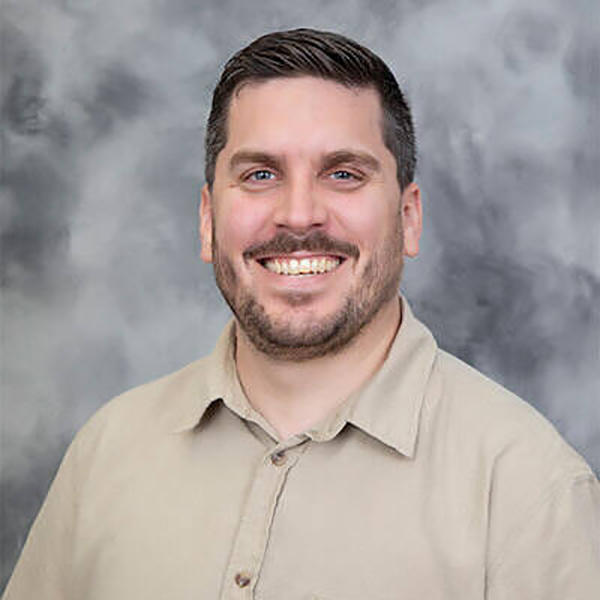
Neoklis Apostolopoulos
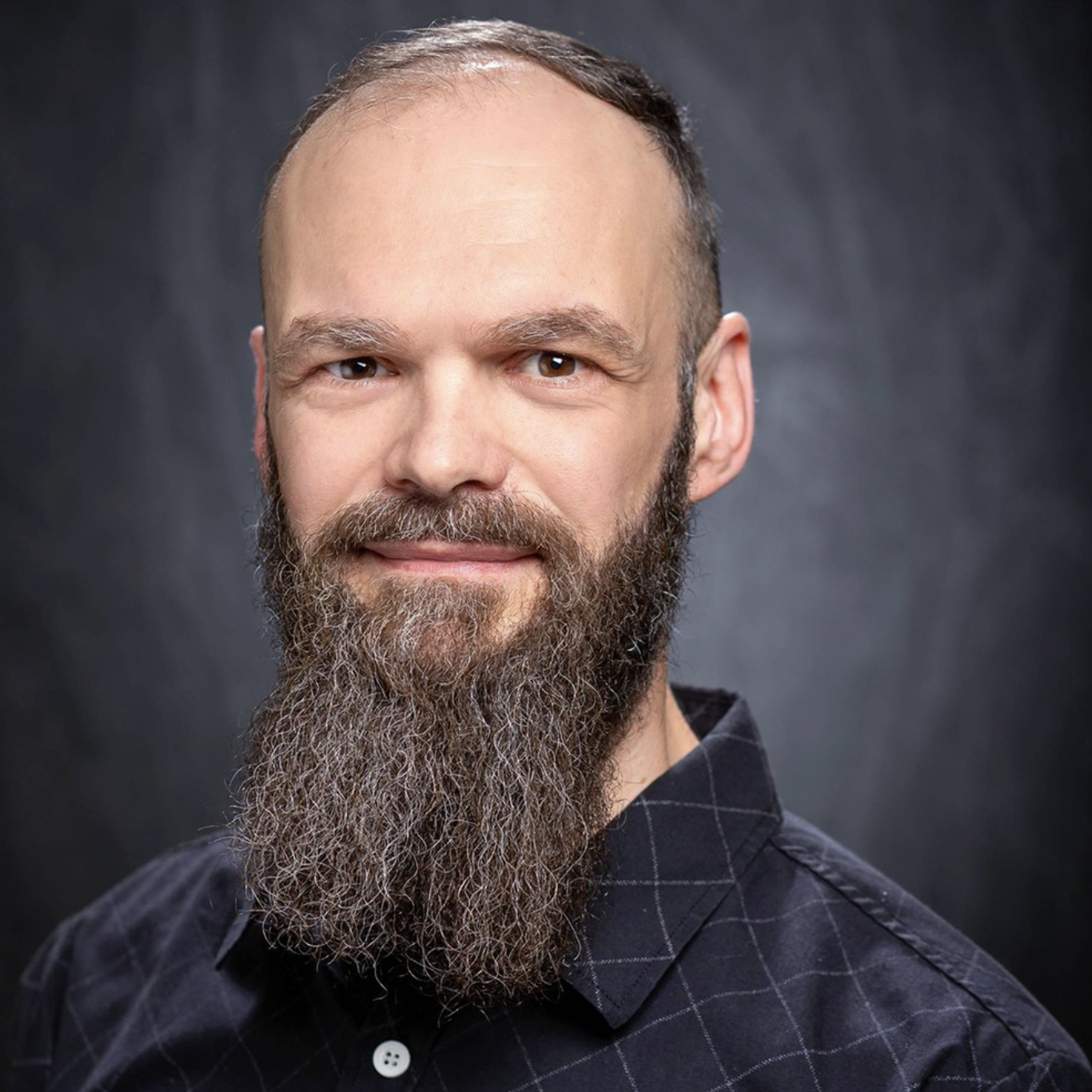
Michal Brylinski
Leveraging AI for Drug Discovery
Michal Brylinski is an associate professor of biological sciences at LSU where he leads the Computational Systems Biology Group, with a joint appointment in the Center for Computation & Technology. His lab applies artificial intelligence to drug discovery and design. As a core member of LSU’s DeepDrug team, he helped advance the group to the IBM Watson AI XPRIZE semifinals in 2020 for AI-based drug discovery. His group has developed methods including DeepDrug3D and Bionoi/BionoiNet for protein–ligand binding-site analysis and classification. Brylinski’s research integrates multiomics data, molecular modeling, and machine learning to accelerate therapeutic discovery, and his work has been supported by the National Institutes of Health.
AI for Stronger National Security
James Ghawaly, assistant professor of computer science and engineering with a joint appointment
in the LSU Center for Computation & Technology, is focused on applications of deep
learning for national security while developing neuromorphic computing and spiking
neural networks. His federally funded research includes the development of an AI-enabled
memory block validator (Department of Defense, $136,000), compact radiation arrays
for tracking and interdiction (Department of Energy, $678,000), and AI models to protect
the nation against nuclear threats (Department of Energy, $750,000, part of a $25
million project with 15 universities and eight national labs). At LSU, Ghawaly teaches
the honor’s course Large Language Model Development and Deployment for Real-World
Applications, for which he received the Robert L. “Doc” Amborski Teaching Award in
2025. Some of his most recent published work includes the development of a local large language model for digital forensics, the exploration of large language models for semantic analysis and categorization
of android malware, and a performance optimization study of the neuromorphic radiation anomaly detector. Ghawaly earned his Ph.D. in Nuclear Engineering from the University of Tennessee Knoxville
in 2020.
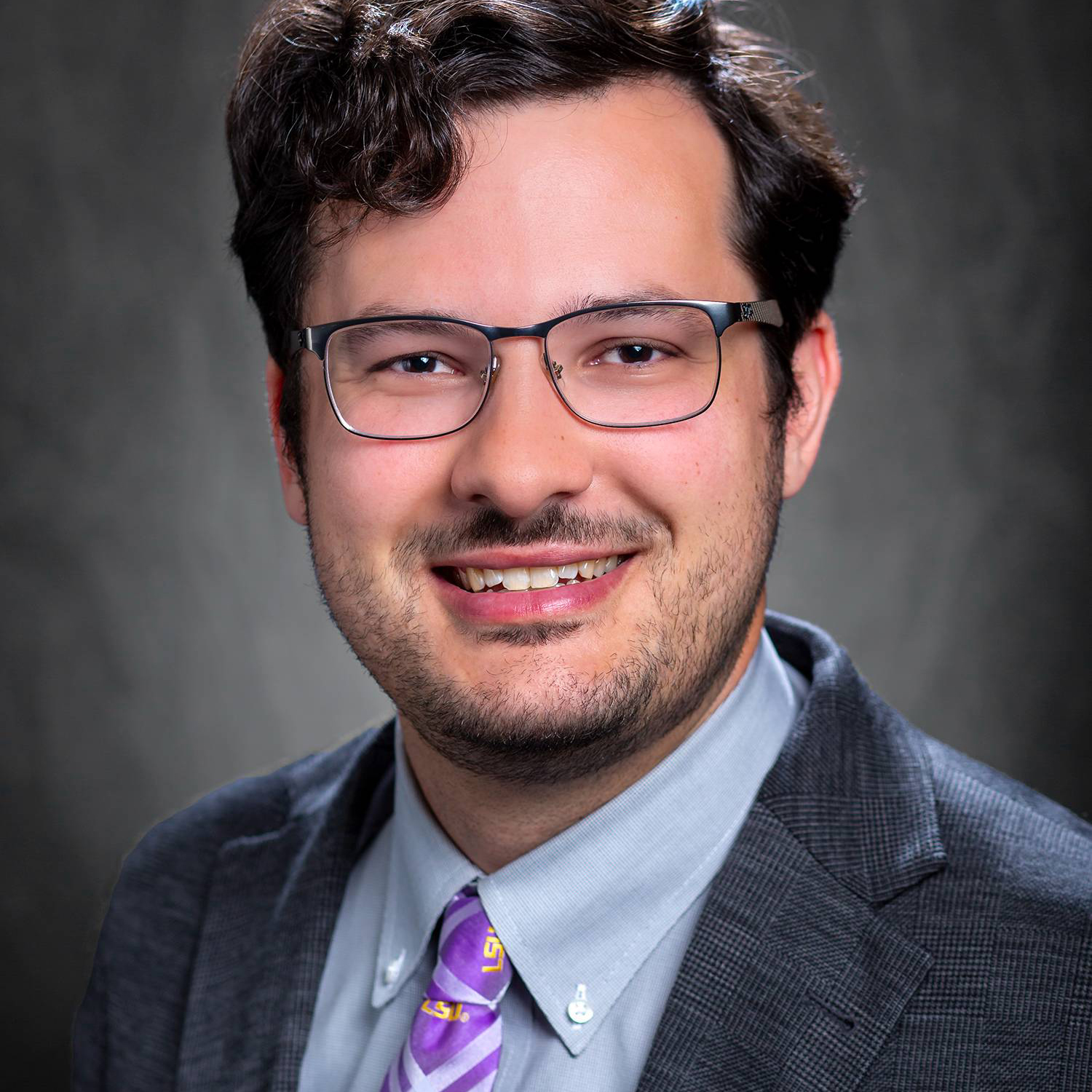
James Ghawaly
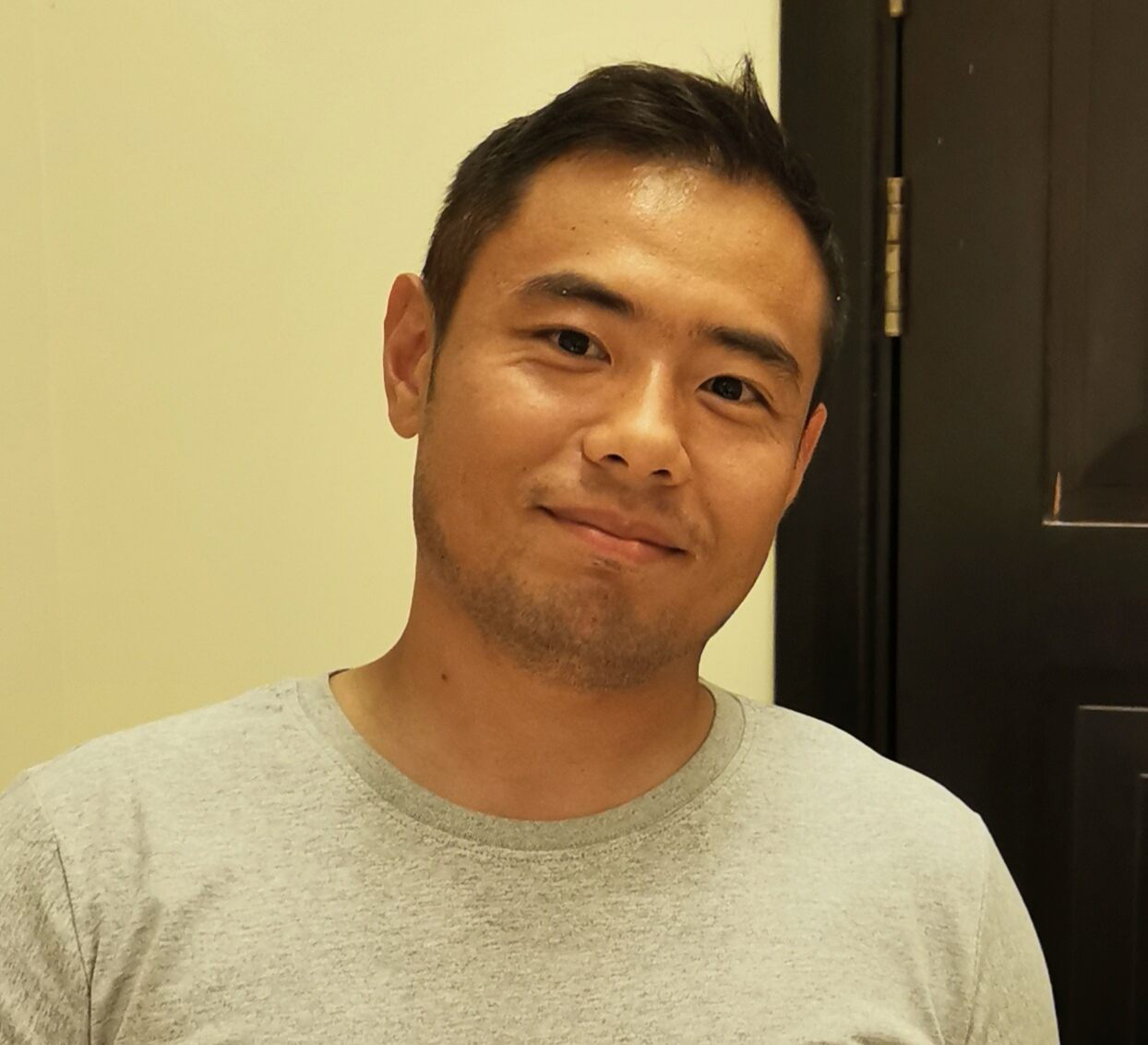
Dong Lau
Helping AI See More Clearly
Dong Lao, assistant professor of computer science and engineering, focuses on computer
vision and machine learning. His research centers on machine visual perception, with
an emphasis on minimizing reliance on human supervision. He is also interested in
the robustness of AI models, computational imaging, and optimization. Dong’s work
has been published in leading venues, including CVPR, ICCV, ECCV, NeurIPS, ICML, and
JMLR. His recent publications include new depth estimation methods involving language priors, techniques that leverage geometric information for visual representation learning, and approaches to resolve quantization artifacts in vision transformers. He holds a Ph.D. in Applied Mathematics and Computational Sciences from King Abdullah
University of Science and Technology (KAUST) and a B.S. in Mathematics with honors
from Shanghai Jiao Tong University (SJTU).
Strenghtening Infrastructure With AI
Furkan Lüleci is an assistant professor of civil and environmental engineering and director of the SIMSIS Laboratory at LSU. His research focuses on developing digital twins of civil infrastructure systems, such as bridges, buildings, and towers. Because digital twins require large volumes of high-quality data, often difficult and costly to obtain, he has advanced the use of generative AI to address this challenge. As part of NASA’s bridge monitoring project, he developed data generation workflows using various generative models for generating synthetic yet realistic infrastructure health data to reduce the reliance on physical sensor installation on infrastructures. His contributions to AI in Structural Health Monitoring (SHM) have earned international recognition. He received the 2023 Aftab Mufti Medal for Best Research, the 2024 Best Research Award from the Journal of Bridge Engineering for innovative approaches to bridge monitoring, and the 2025 Outstanding Dissertation Award for his doctoral research. Lüleci remains actively involved in professional organizations dedicated to digital twins and SHM. He earned his Ph.D. in Civil (Structural) Engineering from the University of Central Florida.

Furkan Luleci

Keith Mills
AI Machinations, Explained
Keith Mills, assistant professor of computer science and engineering, is focused on automated
and efficient machine learning for broad, interpretable artificial intelligence tasks
ranging from foundational generative models to smaller, predictive neural networks.
Prior to joining LSU, he received the highly competitive Alberta Innovates Graduate
Student Scholarship to pursue a project developing data-driven, explainable approaches
for generating better, faster, and more efficient deep neural networks (DNN). At LSU,
Mills teaches courses on artificial intelligence as well as data analysis and mining
and is also involved in the development of an introductory course to DNN and an advanced
DNN acceleration and compression course. Some of his most recent published work includes
interpretable quantization and pruning for foundational generative models as well as a framework for optimizing the underlying computational graph structure of a DNN to
improve efficiency. Mills earned his Ph.D. in Software Engineering and Intelligent Systems from the
University of Alberta in 2025, where his thesis received the George Walker Award for
Best Doctoral Thesis.
AI to Prevent Wildfires, Discover Drugs
Supratik Mukhopadhyay, professor of environmental science with a joint appointment in the LSU Center for Computation & Technology, is an AI and Data Analytics Faculty Fellow with the LSU Office of Data and Strategic Analytics. In 2020, Mukhopadhyay led the LSU DeepDrug team for AI-based drug discovery as far as the semifinal in the prestigious AI XPRIZE competition among 147 teams worldwide. In 2025, he led the DeepFire team for AI-based wildfire prediction and detection to the final of the space-based detection track of the Wildfire XPRIZE among more than 300 global teams—with technology licensed by Firemark AI. Mukhopadhyay’s research advances safe AI via novel architectures and algorithms. His COMBOOD framework leads the OpenOOD leaderboard in near-OOD (out-of-distribution) detection on ImageNet-1k and ImageNet-200 benchmarks. For this work, he received the Best Poster Runner-Up Award at the 2024 SIAM International Conference on Data Mining. His DeepSat framework underlies the NASA Earth Exchange. In 16 years at LSU, Mukhopadhyay has won more than $9 million in research funding from NSF, DARPA, NASA, DOD, DOE, USDOT, USDA, and other agencies. He holds four U.S. patents, with an additional eight pending, and serves as associate editor for IEEE Transactions on Artificial Intelligence and Remote Sensing Letters.
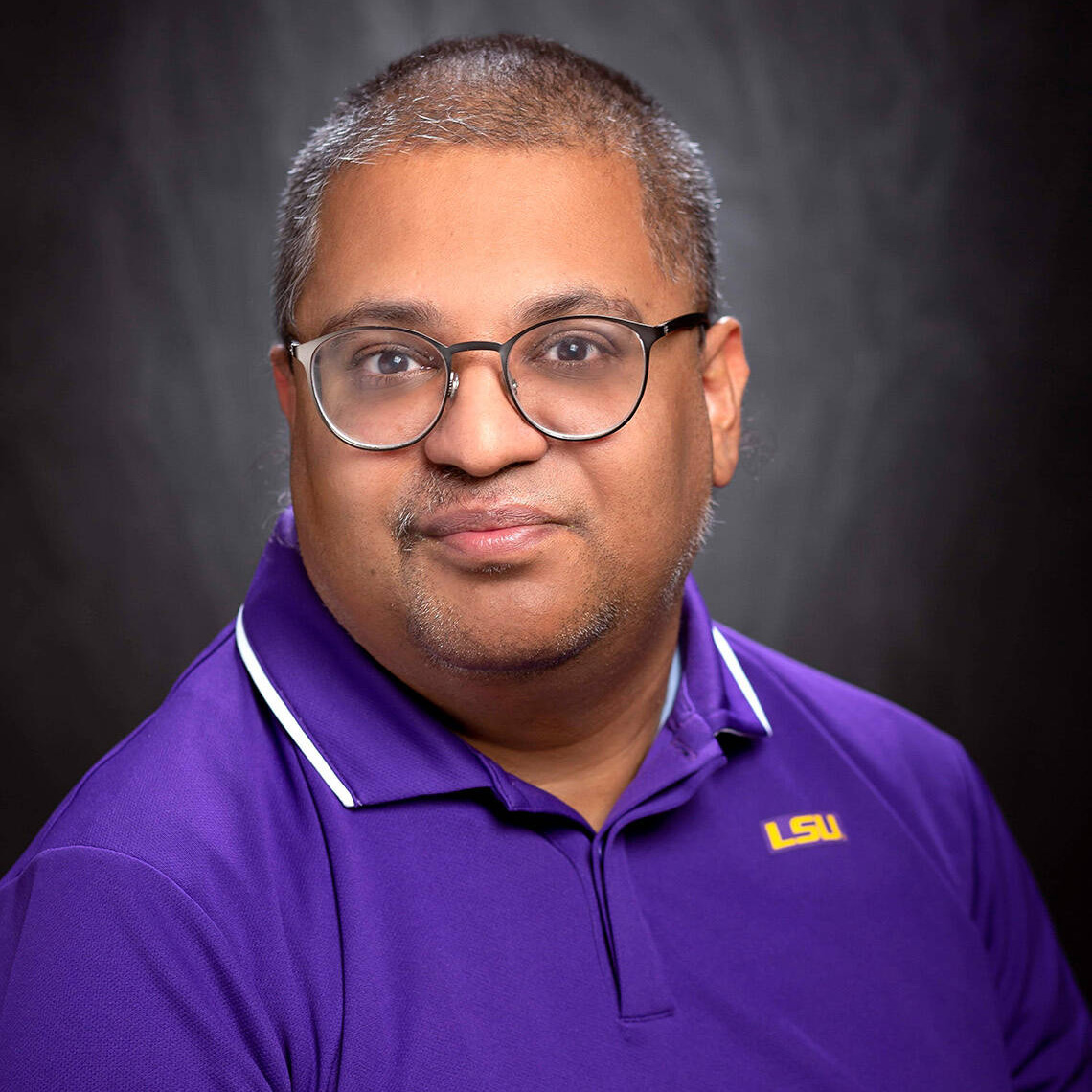
Supratik Mukhopadhyay
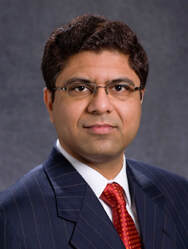
Mayank Tyagi
AI to Protect Oil and Gas, Clean Energy Production
Mayank Tyagi, Chevron professor of petroleum engineering with a joint appointment in the LSU Center for Computation & Technology, applies physics-based high-performance computing simulations and deep learning to solve a wide range of problems in the petroleum and clean energy industries, including operational safety and sustainability issues. He has worked on several federally funded projects, such as a single-wellbore concept for low-enthalpy geothermal energy extraction (Department of Energy, $997,000), an offshore energy safety institute (Department of Interior, $356,000), and modeling of worst-case discharge (Bureau of Ocean Energy Management, $573,000). At LSU, Tyagi teaches machine learning for petroleum engineering applications. Some of his recently published work includes a deep-learning-based early-warning methodology for gas kicks in deepwater drilling, physics-informed machine learning for secondary recovery in an offshore reservoir, and machine learning for automated sand transport monitoring in a pipeline using distributed acoustic sensor data. Tyagi earned his Ph.D. in Mechanical Engineering with minors in Oceanography and Mathematics from LSU in 2003.